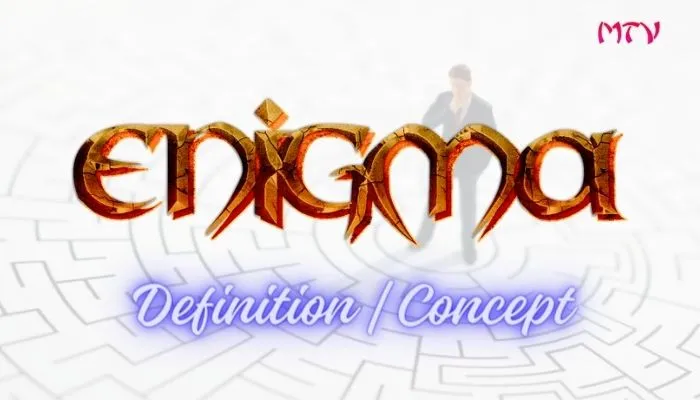Enigma meaning- We explain what an enigma is, the origin of the term and what mathematical enigmas are. Also, differences with a paradigm.
What is an enigma?
An enigma is understood as a matter that is difficult to understand or elucidate, that is, one that does not have an easy answer or solution, or even that it does not have one at all. Enigmas (or enigmatic matters) can be mysterious, but since they are not necessarily unsolvable, they can be understood more as riddles than as eternal mysteries.
The word enigma comes from the Latin aenigma and this in turn from the Greek aínigma, derived from the verb ainíssomai, which could be translated as “insinuate” or “say in a veiled manner.” The term was initially used for words and a certain way of speaking, but ended up associated with that which, because it is so difficult to understand, ends up being inexplicable.
In that sense, the term has been used throughout history. For example, the decoding machine used by the Allies to decipher German military codes during World War II was called “enigma,” and it represents one of the most important ancestors of today’s computers.
Other popular uses of the term have to do with occultism, with the transcendental questions (and without possible answers, at the moment) of humanity, or even with the challenges of logical and mathematical thinking.
Mathematical puzzles
In the field of mathematics and calculation, the term enigma is often used as a synonym for a riddle or a problem that is difficult to solve. Many of them come from ancient times and are formulated with the intention of passing the time or reinforcing a certain type of logical or mathematical reasoning, especially when the answer to the riddle is not the one that seems most obvious.
Must Read:- Viceroyalty of New Spain | Ignorance | Ethnology
A couple of examples of mathematical puzzles are the following:
The three spirits
A pilgrim encounters three spirits on his path: that of truth, that of lies and that of chance. The first always answers his questions with the truth, the second always lies and the third answers sometimes with the truth and sometimes with a lie. However, the three spirits are identical in appearance, and the pilgrim must guess which is which, by asking them three questions whose answer can only be “true” or “false.” The questions can be asked all to the same spirit or one to each, but the condition is that the second question is related to the first and the third to the previous two. How can the pilgrim deduce which spirit each one is?
The triangular cake
A man wants to bring home a cake in the shape of a scalene triangle, and he gives the baker the measurements of the three unequal sides. The baker makes the cake to the letter and asks the customer to bring a box to put it in, but when trying to put it away he realizes that the cake and the box have the same measurements, but symmetrically. He then decides to cut the cake to redistribute its pieces so that it fits in the box, and realizes that just two cuts would be enough. What are those two cuts?
Enigma and paradigm
The words “enigma” and “paradigm” have nothing to do with each other. An enigma is a mystery or a riddle without an answer, on the other hand, a paradigm is a way of considering things, that is, a general way of thinking and/or acting, which defines the perspectives of an era, a culture or a discipline.
Thus, for example, the great revolutions have broken the paradigms of their times, forcing us to think in a different way what until then we thought was resolved and understood.
